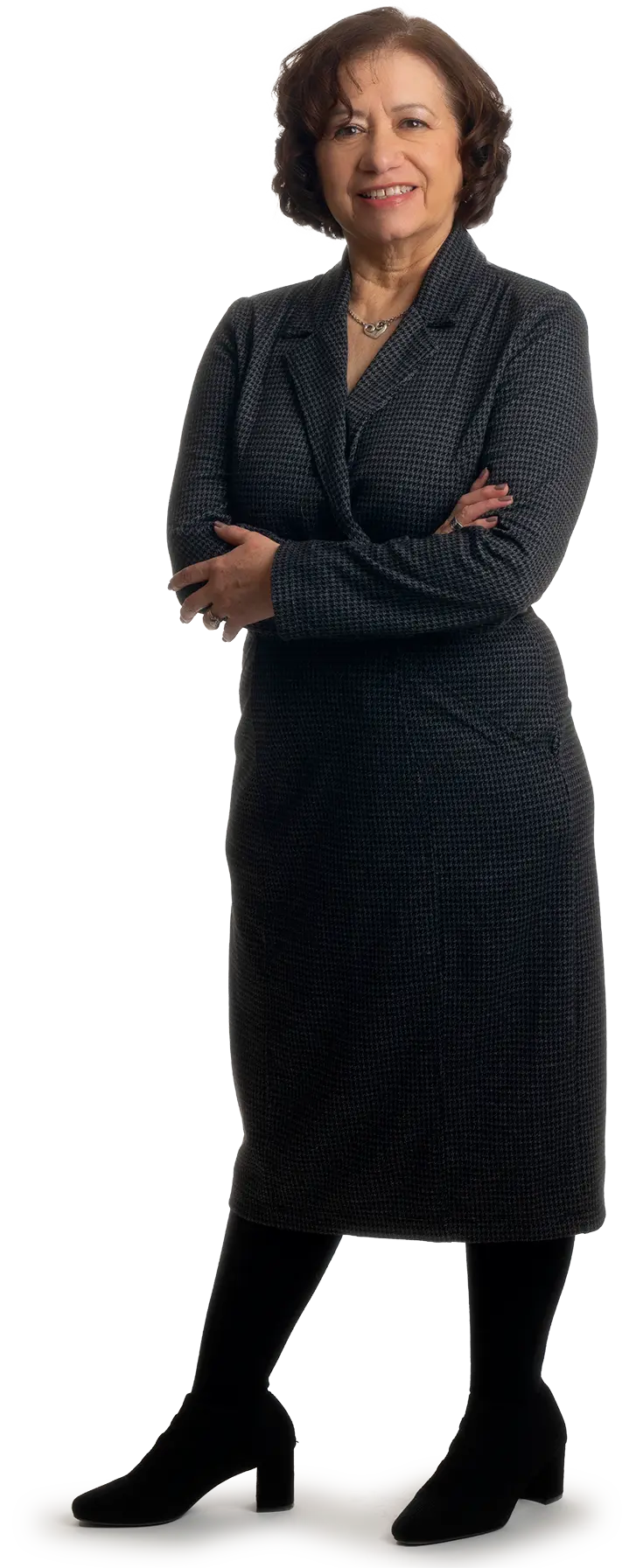 Faculty Profile
Faculty ProfileDebra Flores, PhD
“When I see that light bulb come on with these students, it is almost like being at the bedside and saving someone’s life,” Flores says.
The work is even more rewarding when it benefits students or patients with little access to resources or opportunities – commonly known as underserved populations. Her compassion for these communities was ingrained at an early age. She grew up in extreme poverty, living with her migrant-worker grandparents and working in the fields to help supplement the family income.
She went on to graduate high school, get married and go to nursing school. However, when she was nine months pregnant with her third child, Flores’ husband died in a car crash.
“So, I was a widow. And all these stories, I’ve lived them and the challenges that people now have or have had, I feel like I can relate to them,” Flores says.
She not only dealt with challenges handed to her, but took on new ones as she navigated life and a nursing career. When asked to write a grant proposal for the first time, a request of $10,000, she succeeded. Then, the sums got larger – $100,000 and more than $250,000 – and were awarded, mainly to help the underserved.
Through her grant writing and ability to get more resources for people, she was inspired to work toward a bachelor’s and eventually a master’s degree. Then, when she started at TTUHSC for the first time in 2006, she wrote the curriculum for the first community health worker training program with the School of Nursing.
The ability to find resources is why the TTUHSC administration selected Flores to lead its latest efforts as a Hispanic Serving Institution (HSI): forming a new mentorship program for students called Siempre Adelante, TTUHSC (Ever Onward), supported by a $2.6 million grant from the U.S. Department of Education. The aim is to support all students in realizing their full academic and professional potential, which can be particularly impactful among first-generation students.
Flores was also accepted into the 2024-2025 Hispanic Association of Colleges and Universities’ Leadership Academy (La Academia de Liderazgo) Fellowship. The academy aids faculty members nationwide in navigating leadership roles in HSIs. It is a position, she says, that marries well with her goals of providing mentorship to students.
“I wish I would have had somebody to sit with me and sometimes just listen to me. As a first-generation college student, I had a lot of questions,” Flores says. “Like, ‘I don’t understand how this works. Who do I go to?’ I think that just having that someone to listen to you is and will be pivotal for our mentorship program.”
